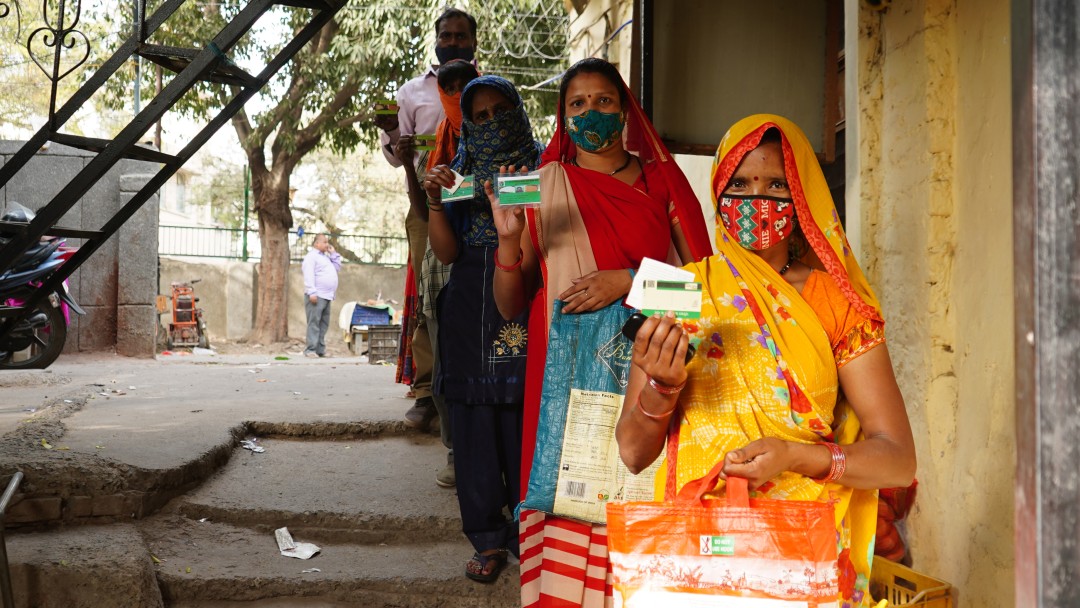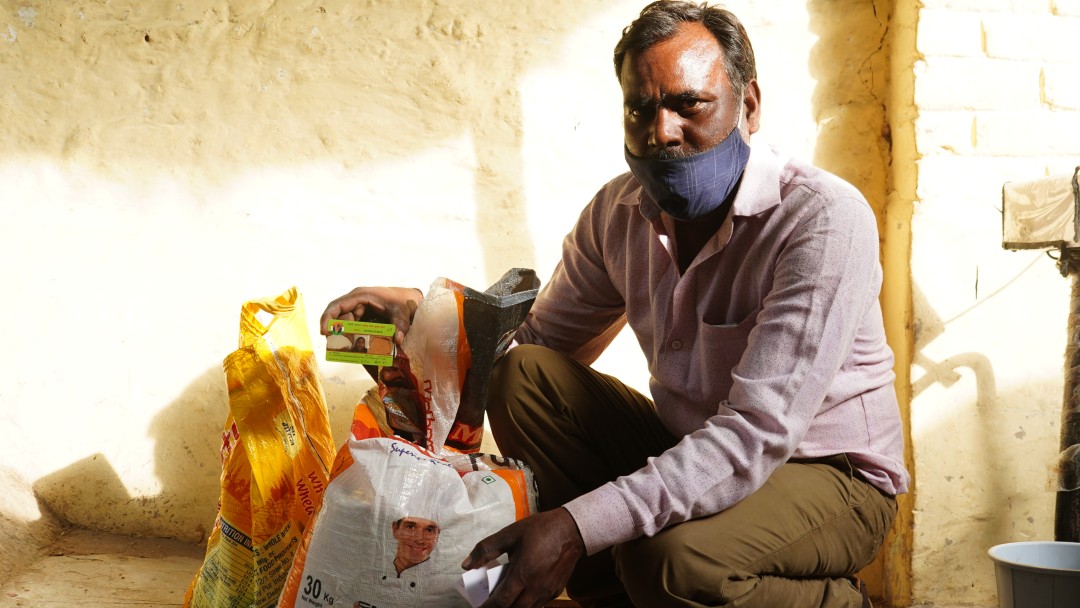News from 2021-04-13 / KfW Development Bank
India: KfW supports reform of the social security system
Help for more than 800 million people in need during the Corona crisis

On behalf of the German Federal Government and in cooperation with the World Bank, KfW is supporting the Indian Government in implementing a package of measures worth USD 23 billion to alleviate the corona crisis. On behalf of the BMZ, it has provided EUR 460 million for this purpose, which are being disbursed in two tranches. The first tranche has already supported more than 800 million needy people. Now a second tranche of EUR 210 million has been disbursed to finance structural reforms of India's social security system.
Chameli Devi is happy to get food for herself and her four sons at the Fair Price Shop in Delhi. The housewife lives in a neighbourhood where mainly socially disadvantaged people live. Since the outbreak of the COVID 19 pandemic, many people in India have lost their jobs or earn less income. India had initially contained the pandemic by imposing a radical lockdown. This plunged many people into deep poverty, especially among day labourers and the approximately nine million migrant workers.
The Indian government has taken countermeasures with aid programmes. Already 800 million people have received food such as wheat and rice, and an additional 320 million Indians have received financial aid. On behalf of the German Federal Ministry for Economic Cooperation and Development (BMZ), KfW is supporting the Indian Ministry of Finance in shouldering these burdens. The aid is distributed locally through an existing network of more than 500,000 fair price shops, local governments, self-help groups and community-based organisations. The majority of the beneficiaries are women, especially mothers with children, who are rarely able to work anyway due to their burden in the family.

But the relief packages are only one step in preventing acute emergencies. In addition, the World Bank is helping India to standardise and improve its social security system. KfW is also involved in this programme together with other donors. The Indian social system has so far been fragmented into around 465 individual programmes. They are now being combined and integrated into a sustainable social security system. Previously, mainly poor people in rural areas were supported, but now urban poor are to be better covered. Migrant workers, who were previously virtually excluded from social assistance, will now be given greater consideration. The Indian government has already implemented important steps of the reform, which it had committed to the World Bank and the other donors in a phased plan. KfW has therefore now transferred a second tranche of EUR 210 million on behalf of the BMZ.
In the course of the first reform steps, employees of the health system have received additional insurance to cushion their particular risks during the pandemic. The Indian government has also made structural changes. The previously 35 institutions of the social system have been merged into a single organisation. A new, unified social legislation created the basis for this.
In recent years, India had succeeded in significantly reducing the proportion of those earning less than 1.90 US dollars a day. The pandemic is now causing a step backwards in the fight against poverty. The programme supported by KfW is designed to prevent many Indians from falling back into extreme poverty.
In another project, KfW, also on behalf of the BMZ, is supporting UNICEF in the procurement and distribution of COVID 19 tests and vaccines in India - in addition to emergency aid for the needy and the reform of social security systems, this is another lever to strengthen the country's health and social system with German help and thus contribute to containing the pandemic on the subcontinent.

Share page
To share the content of this page with your network, click on one of the icons below.
Note on data protection: When you share content, your personal data is transferred to the selected network.
Data protection
Alternatively, you can also copy the short link: https://www.kfw-entwicklungsbank.de/s/enzBWrMC.CduA
Copy link Link copied